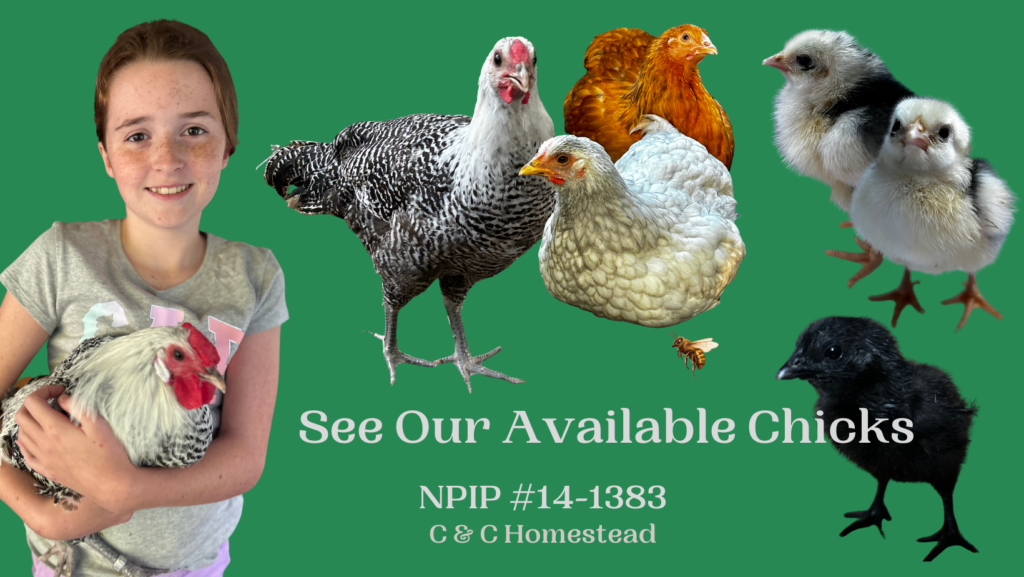Balancing Corporate & Homesteading Lifestyles
Herbs: How Much Is Too Much?
Posted on December 14, 2024 by Weekend Homesteader
Yes, chickens can eat too much of an herb, and while many herbs are safe in moderation, overconsumption of certain herbs may pose risks to their health. Here’s a detailed guide to understanding how and why some herbs can be problematic for chickens and which ones to watch out for.
How Chickens Overeat Herbs
Chickens generally self-regulate their intake of food, including herbs. However, in situations where certain herbs are overly abundant or the chickens are confined without other food options, they may consume too much. Excessive consumption can lead to health problems due to the strong chemical compounds present in some herbs.
Herbs That Might Pose a Risk in Excess
1. Parsley
- Risk: Contains high levels of oxalic acid, which can interfere with calcium absorption and lead to deficiencies, potentially causing soft-shelled eggs in laying hens.
- Safe Use: Offer in small quantities as a treat, especially to laying hens. Avoid feeding parsley excessively over extended periods.
2. Oregano
- Risk: While oregano is a potent natural antibiotic and immune booster, overuse could disrupt gut bacteria balance, potentially leading to digestive upset.
- Safe Use: Use dried oregano in small amounts mixed with feed or fresh sprigs in their foraging area. Alternate with other herbs to prevent overconsumption.
3. Mint
- Risk: Mint’s cooling properties can cause digestive upset or reduced appetite if consumed in large amounts.
- Safe Use: Offer fresh mint leaves sparingly, ensuring chickens have access to other foraging options.
4. Basil
- Risk: Basil contains essential oils that can be beneficial in small doses but may irritate the digestive tract if consumed in large quantities.
- Safe Use: Provide fresh basil leaves occasionally and monitor intake.
5. Garlic (Raw or Powdered)
- Risk: Garlic in excess can cause gastrointestinal distress due to its sulfur compounds. Chronic overfeeding may also taint the taste of eggs.
- Safe Use: Add garlic to water or feed in small amounts (e.g., one crushed clove per gallon of water or a pinch of garlic powder mixed in feed). Avoid feeding daily over long periods.
6. Dill
- Risk: Excessive dill consumption may affect egg flavor and could lead to digestive upset due to its strong essential oils.
- Safe Use: Offer fresh dill leaves or seeds occasionally, mixed with other greens.
7. Lavender
- Risk: While generally safe, lavender contains compounds that can be too sedative if consumed in large quantities, potentially leading to lethargy.
- Safe Use: Provide as part of nesting box bedding or small amounts of fresh leaves for occasional pecking.
8. Sage
- Risk: Contains thujone, a compound that can be toxic in large amounts, affecting the nervous system.
- Safe Use: Offer sparingly as fresh leaves or dried herb mixed into feed. Avoid large or frequent amounts.
9. Thyme
- Risk: The essential oils in thyme can be irritating to the digestive tract if overconsumed.
- Safe Use: Use as a feed additive or occasional treat in small doses.
Symptoms of Overconsumption
If a chicken has eaten too much of a particular herb, you may notice:
- Digestive Issues: Loose droppings or diarrhea.
- Lethargy: Reduced energy or activity.
- Loss of Appetite: Chickens may stop eating regular feed.
- Reduced Egg Production: Overconsumption of calcium-inhibiting herbs like parsley may cause poor shell quality or reduced laying.
Herbs That Are Potentially Toxic in Any Amount
Some herbs should be avoided entirely as they are toxic to chickens:
- Chives
- Contain sulfides that can damage red blood cells, leading to anemia.
- Onion
- Like chives, onions are toxic due to sulfur compounds.
- Foxglove, Nightshade, and Rhubarb Leaves
- Highly toxic plants containing cardiac glycosides or oxalic acid.
Best Practices for Feeding Herbs to Chickens
- Offer Herbs in Moderation:
Mix herbs with other greens or grains to dilute their intake and prevent overconsumption. - Rotate Herb Choices:
Alternating between different herbs keeps their diet varied and reduces the risk of excess. - Observe Your Chickens:
Monitor your flock for signs of overconsumption or distress. - Provide a Balanced Diet:
Herbs should complement a well-balanced feed, not replace it.
Conclusion
While herbs can be a fantastic supplement to a chicken's diet, overconsumption can lead to health issues depending on the herb. Always introduce herbs gradually, offer them in moderation, and watch for any adverse effects. Providing a variety of foraging options ensures that your flock enjoys the benefits of herbs without overindulging. 🌿🐓
Category: General



Latest Posts
Categories
Post Tags
Affiliate Marketing Affirmations Animal Grooming Animal Health Animal Reiki Animal Rescues Animals avian flu backyard chickens backyard flock Beekeeping Bees biosecurity bird flu Business Business Strategies Cats CBD chick care chicken care chicken health Chickens chicken treat chick health Cluck Kent Dogs Dog Training First Aid Gardening Health Herbs For Chickens Homesteading Long Covid Marek's Disease Mindset Pawsome Deals Personal Stories Places quarantine Reiki Rooster Roosters The Pawsitive Cause Project Time Management Trail Cam
Copyright © 2025 · All Rights Reserved · Weekend Homesteader
Theme: Natural Lite by Organic Themes · RSS Feed
